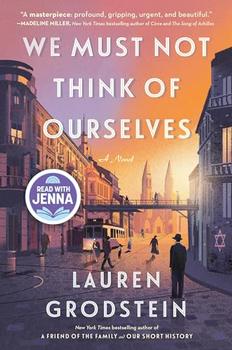Reading Guide Questions

Please be aware that this discussion guide will contain spoilers!
-
Why do you think Emanuel Ringelblum created the Oneg Shabbat project? How did the project's goals change as the novel progressed?
-
Why do you think more Jews didn't try to leave Poland as conditions deteriorated? Why do you suppose they didn't try to escape from the ghetto?
-
In what ways do you feel the children were at the heart of ghetto life? Why do you suppose that was so?
-
What is Szifra's attitude toward her brothers? Why doesn't she abandon them? What do you think you would have done in her place?
-
Although Adam never had children of his own, he takes on various paternal roles throughout the novel. What kind of father figure is he to the individual children in the story? What do you believe he's attempting to teach them through poetry?
-
What's your opinion of Nowak, the guard who helped Adam?
-
Midway through the novel, Adam encounters a fellow Oneg Shabbat archivist who tells him the ghetto has exposed the rot of Warsaw's Jewish citizens. What do you make of his speech, and of Adam's reaction to it? (Chapter 12, pages 132-136)
-
If Kasia were alive, do you think she would have accompanied Adam to the ghetto? Would they have been able to escape before the war?
-
What role does Yiddish play in We Must Not Think of Ourselves? What does it symbolize? What is its power?
-
How did you feel about Henryk Duda, Kasia's father? Did he love Adam, or did he just want to use him for his own ends?
-
Is Sala and Adam's affair immoral, or do you think morality can take different shapes in certain circumstances? Do you believe they did actually love each other? Do you think others knew what was going on and chose to look the other way?
-
What do you make of Adam switching out the photos in the kennkartes? Were you disturbed by his choice to do so, or do you think you might have done the same?
-
Nearly every character in the novel finds themselves in this situation. Have you ever been in a situation where every one of your options is a compromise, that there is no way to do right by everyone? How did that make you feel?
-
In what ways did this story broaden your understanding of life during the Holocaust?
-
Adam says that he and his students separated themselves into "those whose glasses were half-full, whose glasses were half-empty, whose cups would always overflow." Which characters did you find particularly optimistic? Which were most pessimistic? Did attitude help or hurt these characters? On a scale of one to ten, with one being the most pessimistic and ten being the most optimistic, where do you rate yourself and why?
-
After Adam reads Rudyard Kipling's poem, "If—" to his students, Szifra calls the poet an "idiot…to think that forgiveness solves anything…It proves that you are willing to roll over when people are walking on your back." What do you think of this statement? Do you agree with it? Why or why not?
-
Henryk calls Adam a realist, adding that "if the world were only made of realists the world would never change." Do you agree with him? Why or why not?
-
While Mariam Lescovec is being interviewed, she tells Adam about her father's apprentice, who eventually turned against her family, saying he grew scared to associate with Jews. She adds, "It's easier to think that someone is a coward than a bigot." Do you think this is true? Why or why not?
Download the full Book Club Kit
Unless otherwise stated, this discussion guide is reprinted with the permission of Algonquin Books.
Any page references refer to a USA edition of the book, usually the trade paperback version, and may vary in other editions.

 Book Reviewed by:
Book Reviewed by:





